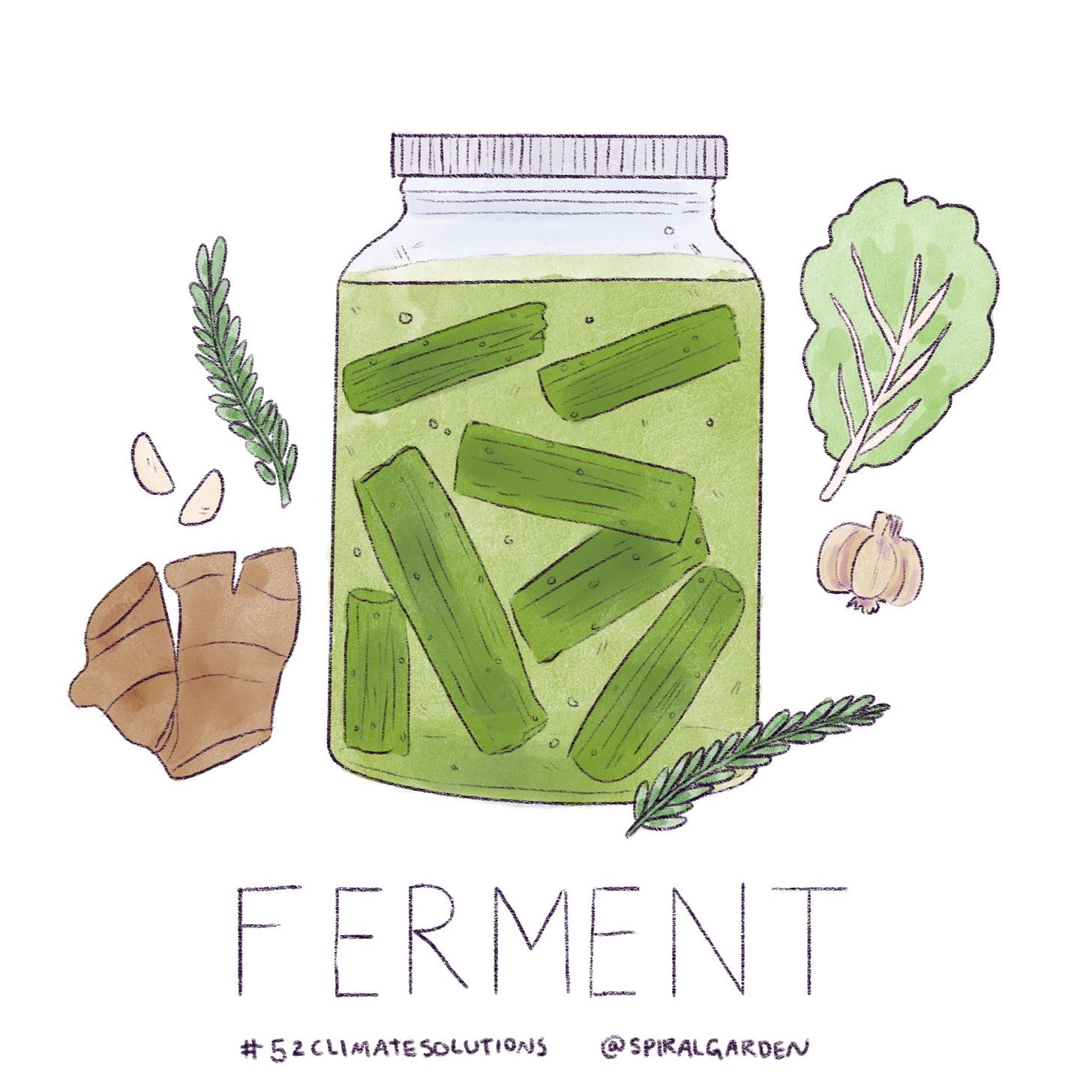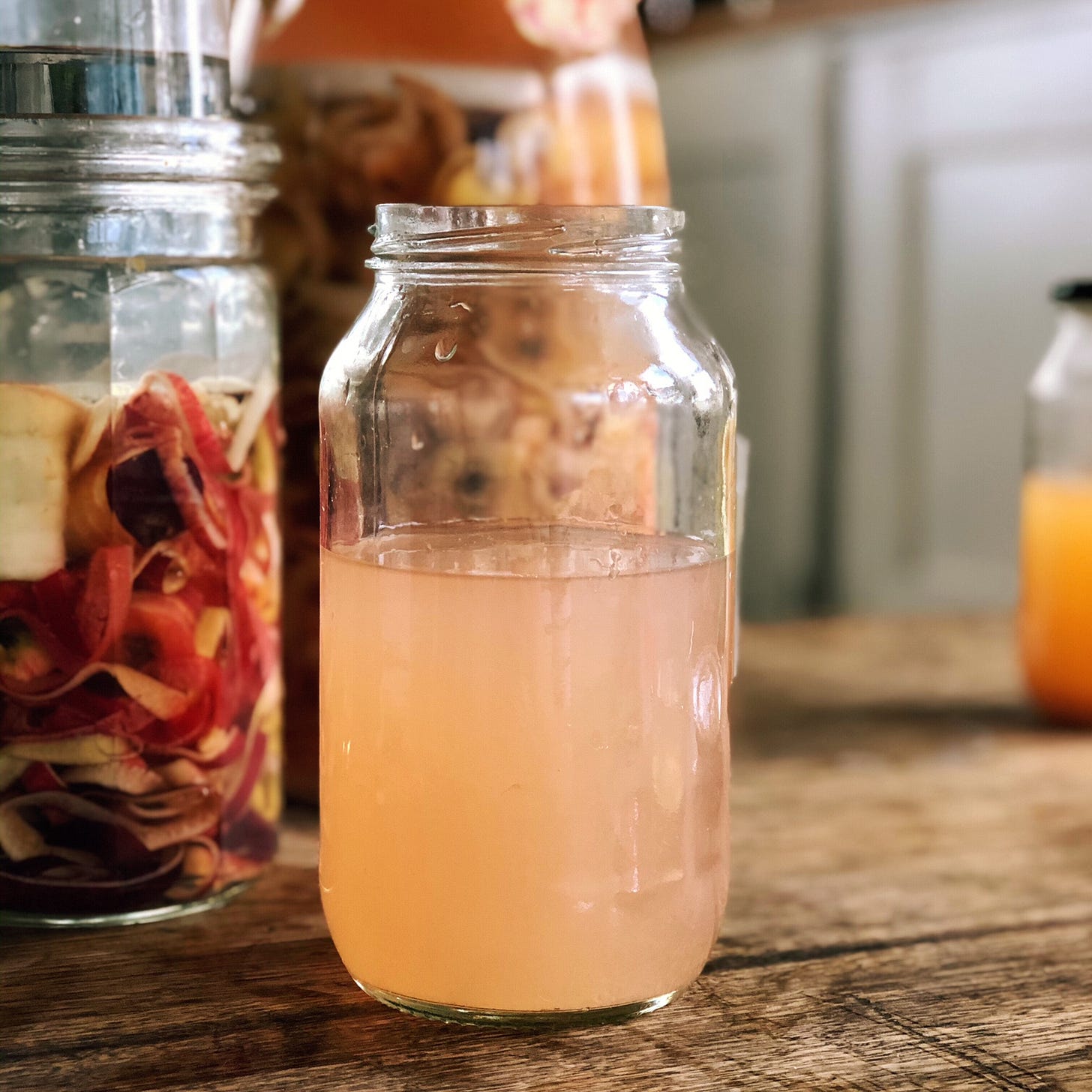17. Ferment
This weeks’ #52climatesolutions, is to ferment! There are lots of great ways to reduce emissions and food waste, and this is one of our favourites.
The solutions to climate change are many and varied. Some a big, system-structure changes, whilst others are small, practical things that we can do at home. Just because you’re at home, doesn’t mean you can’t save the world!
Food waste remains a monumental problem, contributing to climate change when organic matter in landfill produces methane emissions. This equates to 8% of global greenhouse gas emissions, or about the same as emissions from road transport. Wasted food inevitably means wasted water, wasted energy (often fossil-fuels) and wasted human effort. Not to mention the problems with food scarcity and inequity around the world. The average Australian household wastes 20% of the food it buys. And who knows how much home-grown food gets uneaten or wasted?
Fortunately, there are lots of great ways to reduce food waste. One of our favourites is this weeks’ #52climatesolutions, which is to ferment! Since ancient times, humans have used fermentation to preserve food using microorganisms. Some common fermented foods include beer, wine, bread, cheese, yoghurt, vinegar, miso, tempeh, pickles, and kimchee. Often, all you need to start fermenting food is a glass jar and maybe two ingredients (e.g flour and water for sourdough, or cabbage and salt for sauerkraut) - low-carbon, local and simple eating at its best!
Fermenting helps to preserve a seasonal glut. Fermenting utilises naturally occurring bacteria and yeasts that float in the air, so your ferments might contain a different microflora to your mates' on the other side of the world.
Fermenting fosters a connectedness to place and to nature, when you harness the possibilities of the ‘invisible’ living yeast and bacteria (they are in every breath you breathe) in the air around you, to make delicious and nutritious foods and drinks. It can help make certain foods more digestible, and be beneficial to your gut microbiome, making for a healthier you.
Fermenting can even help you make vinegar to clean your home, and you can make it without setting foot outside your door. Now’s a great time to pick up some new fermenting skills, or get into a rhythm of utilising ferments in your day to day.
Keep reading for two of our favourite fermenting recipes to bring some happy-gut, food-preserving goodness to your week, and this week’s printable colouring page.
Keep reading with a 7-day free trial
Subscribe to The Spiral Garden to keep reading this post and get 7 days of free access to the full post archives.



